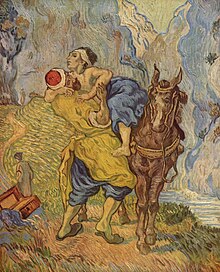Our website is made possible by displaying online advertisements to our visitors.
Please consider supporting us by disabling your ad blocker.
Conscience

A conscience is a cognitive process that elicits emotion and rational associations based on an individual's moral philosophy or value system. Conscience stands in contrast to elicited emotion or thought due to associations based on immediate sensory perceptions and reflexive responses, as in sympathetic central nervous system responses. In common terms, conscience is often described as leading to feelings of remorse when a person commits an act that conflicts with their moral values. The extent to which conscience informs moral judgment before an action and whether such moral judgments are or should be based on reason has occasioned debate through much of modern history between theories of basics in ethic of human life in juxtaposition to the theories of romanticism and other reactionary movements after the end of the Middle Ages.
Religious views of conscience usually see it as linked to a morality inherent in all humans, to a beneficent universe and/or to divinity. The diverse ritualistic, mythical, doctrinal, legal, institutional and material features of religion may not necessarily cohere with experiential, emotive, spiritual or contemplative considerations about the origin and operation of conscience.[1] Common secular or scientific views regard the capacity for conscience as probably genetically determined, with its subject probably learned or imprinted as part of a culture.[2]
Commonly used metaphors for conscience include the "voice within", the "inner light",[3] or even Socrates' reliance on what the Greeks called his "daimōnic sign", an averting (ἀποτρεπτικός apotreptikos) inner voice heard only when he was about to make a mistake. Conscience, as is detailed in sections below, is a concept in national and international law,[4] is increasingly conceived of as applying to the world as a whole,[5] has motivated numerous notable acts for the public good[6] and been the subject of many prominent examples of literature, music and film.[7]
- ^ Ninian Smart. The World's Religions: Old Traditions and Modern Transformations. Cambridge University Press. 1989. pp. 10–21.
- ^ Peter Winch. Moral Integrity. Basil Blackwell. Oxford. 1968
- ^ Rosemary Moore. The Light in Their Consciences: The Early Quakers in Britain 1646–1666. Pennsylvania State University Press, University Park, PA. 2000. ISBN 978-0-271-01988-8,
- ^ "Universal Declaration of Human Rights". United Nations. Retrieved 13 December 2022.
- ^ Booth K, Dunne T and Cox M (eds). How Might We Live? Global Ethics in the New Century. Cambridge University Press. Cambridge 2001 p. 1.
- ^ Amnesty International. Ambassador of Conscience Award. Retrieved 31 December 2013.
- ^ Wayne C Booth. The Company We Keep: An Ethics of Fiction. University of California Press. Berkeley. 1988. p. 11 and Ch. 2.
Previous Page Next Page


